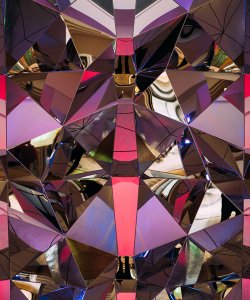How the Light Gets In: The Volcano
What does it mean to truly let loose as a writer? The author of I’m Not Hungry but I Could Eat urges us to lean into the fire and pressure head-on, to let everything out on the page and offer it up to the world.
Jump to navigation Skip to content
What does it mean to truly let loose as a writer? The author of I’m Not Hungry but I Could Eat urges us to lean into the fire and pressure head-on, to let everything out on the page and offer it up to the world.

Taking inspiration from a creature of the summer, a seasoned writer suggests a few approaches to stimulate, refresh, and gather your thoughts for the next stage of writing and spark your imagination with play.

“For me, giving language to something, finding a name for it, enacts a kind of metabolic process.” —Cintia Santana, author of The Disordered Alphabet

The author of Mistaken for an Empire: A Memoir in Tongues offers an approach to critically engaging with a colonialist literary canon.

The author of Mistaken for an Empire: A Memoir in Tongues explores how formal experimentation and play can help move a writing project forward.

The author of peep finds poetic surprises in the workaday language of commerce and culture.

The author of The White Mosque troubles the boundary between realist and genre fiction.

The author of Took House explores what happens when poets permit themselves to write about the same subject multiple times.

The author of Took House explores the importance of “strangeness” in poetry and offers a method for capturing this quality by combining two different draft poems.

The author of Took House explores a kinder approach to revision, in which language cut during one editorial process may be saved as material for a new writing project.